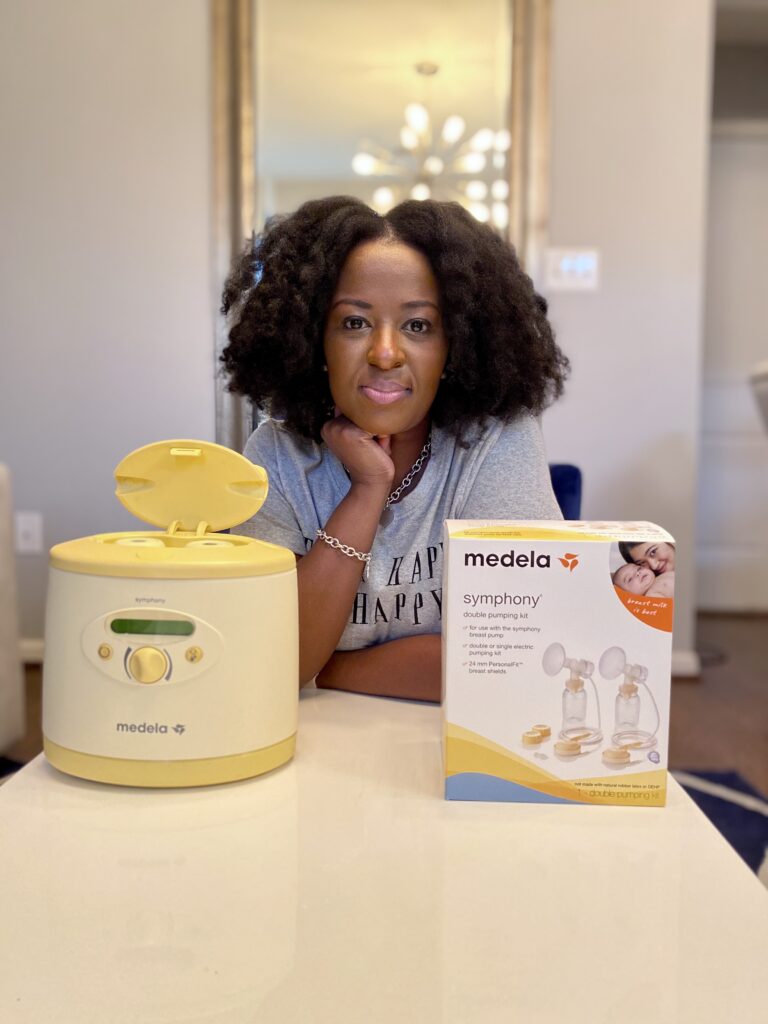One of the most common questions I get asked as a lactation consultant is what pump should I use? When should I start pumping and when do I need to call a lactation consultant.
As a lactation consultant my goal is to help mothers achieve their breast-feeding goals as they come. Whether its to exclusively breastfeed, pump or do both. In this post I am sharing how to prepare yourself for your breastfeeding journey and how to maximize your time with your lactation consultant (LC).
Breastfeeding is truly a labor of love, its countless hours of nursing, washing pump parts, pumping, manual expression and stimulation. In order to be as successful in your breastfeeding journey, preparation and education is key.
Before your little one arrives, make sure you get in contact with your insurance company and find out which pump is covered under your plan. Once that’s done, do your due diligence, do you research and get to know your pump! Go on Youtube or google and research the in’s and out’s of your pump, down to the accessories needed. Again preparation is key. Learning the functionalities of your pump prior to your delivery will come in handy. Breast milk comes in 3-5 days post-partum. The last thing you want to do after giving birth is to learn how to work a pump. In terms of what to look for, in a pump there are a few factors that come in to play; Affordability and portability are two big ones.

Medela double electric pump
Affordability; although most pumps are covered by insurance, If you decide on getting a second pump, they may run around $200 or more. If you can’t afford one, there are several rental options so purchasing isn’t your only route. If you work in a hospital, they often have pumping rooms, in which case, purchasing a second pump for work isn’t necessary.
Portability: If you have ever seen a breastfeeding/pumping mom on the go she looks like she’s about to climb Mount Everest. She’s lugging around her purse, launch bag a nursing bag lol! I know, I was one of them. Carrying my pump and accessories wasn’t easy but it was necessary. They have several options of lightweight pumps now, so make sure you look into those if you are commuting to and from work. Here is a great example of a lightweight portable pump.

I work in a hospital and in our nursing rooms, we had the Medela pump. This is one of the best-known pumps on the market. I personally have used it and I often recommend it to my clients. It’s a double electric pump, meant to be used simultaneously or on one breast. According to Medela, this pump is designed to mimic the feeding rhythm of your baby. This particular one is the hospital grade (multi-user), allowing shared usage. It powerful, but a bit on the noisier side.

Once you have established which pump will suit you more it’s time to reach out to lactation consultants. Whether its through your og/gyn, doula or midwife find one.
When I go on my consults, a lot of mothers say they wish they knew a lot of the stuff prior to giving birth. Well here’s new for you, there are tons of breastfeeding classes just like there are birthing classes. Some are free, some aren’t but both can be valuable.
Another way to prepare for your journey is to see your LC while you are in the hospital. This is standard protocol for most post-partum floors. Your time in the hospital will be limited so make it count! Have your questions ready, ask her to show you multiple positions, how to properly latch, how to unlatch and so much more. She is here to help you attain your breastfeeding goal, USE HER!
Last but not least, ask for resources in your community. Find an LC that can-do home visits. It often helps to see your element. If that service isn’t available, find an LC from a Private practice. What you will learn at the hospital will be useful, but I truly believe seeing an LC after being discharge is a game changer. As mentioned, your milk comes in 3-5 post-partum your baby will start to be more awake and aware about feeds and now is the time to have the LC guide/coach you through it all.
Once you have done your research, picked a pump and have gotten help from an LC you are probably wondering when should you start pumping. Some mothers may never need to pump if they choose to exclusively breastfeed. Others will need to pump early to start a milk stash to return to work. Pumping will allow you respite. Expressing milk and saving it to be offered for a later feed will come in handy for night time feeds or if you need to step out. I personally started pumping the night we got home because I was exhausted and I was engorged. It is recommend to wait until breastfeeding is well established before giving the bottle. However you must do what is right for you. Whether you pump for relief or to establish a milk stash, ensure you have the right tools and support.
The journey wont always be easy, but it will always be worth it. I hope this blog post was useful and that you will apply these tips on your journey.
Tania Joline xoxo

Recent Comments